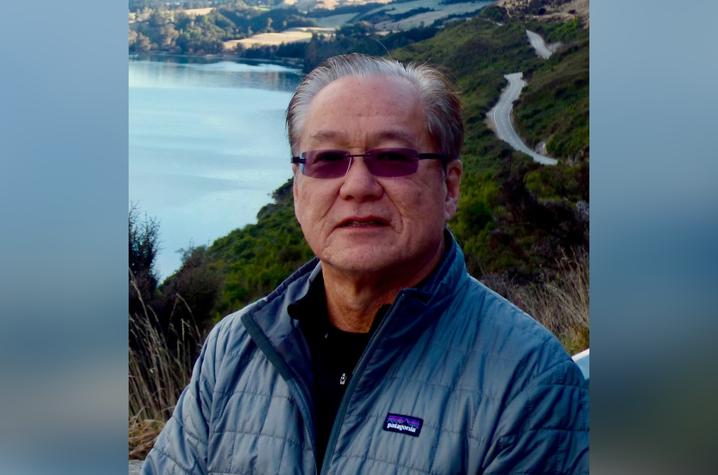Pioneer in genetics research to deliver UK’s Thomas Hunt Morgan Lectures

LEXINGTON, Ky. (Oct. 7, 2024) — Joseph Takahashi, Ph.D., the Loyd B. Sands Distinguished Chair in Neuroscience, investigator emeritus in the Howard Hughes Medical Institute and chair of the Department of Neuroscience at the University of Texas Southwestern Medical Center in Dallas, will deliver the annual Thomas Hunt Morgan Lectures at the University of Kentucky.
The first lecture, “Circadian Clocks and Their Impact on Metabolism, Aging, and Longevity,” will be 2 p.m. Oct. 24 at the Thomas Hunt Morgan Biological Science Building in room 116.
The second lecture, “The Time of Your Life: How Circadian Clocks Promote Healthy Aging and Longevity,” will be 1 p.m. Oct. 25 at the Thomas Hunt Morgan Biological Science Building in room 107. Both events are free and open to the public.
In addition, there will be an alumni reception from 6-9 p.m. Oct. 25 at the Thomas Hunt Morgan House, 210 N. Broadway in Lexington. Alumni and UK Department of Biology community members must RSVP here. For questions, contact biology@uky.edu. The events are sponsored by the Gertrude Flora Ribble Endowment, the College of Arts and Sciences and the Department of Biology.
Takahashi is a pioneer in applying forward genetics and positional cloning in mice to uncover genes related to neurobiology and behavior. His identification of the clock genes in both mice and humans contributed to the understanding of a conserved circadian clock mechanism in animals.
Recently he has discovered key roles for circadian clocks in parasitic diseases such as sleeping sickness and malaria. In the field of aging, his lab has recently shown that circadian alignment of feeding under caloric restriction is a major factor in lifespan extension in mice.
Takahashi is a member of the National Academy of Sciences and the National Academy of Medicine. He is the recipient of the Honma Prize in Biological Rhythms Research, NSF Presidential Young Investigator Award, Searle Scholars Award, Bristol-Myers Squibb Unrestricted Grant in Neuroscience, the C.U. Ariens Kappers Medal, W. Alden Spencer Award in Neuroscience from Columbia University, Gruber Neuroscience Prize at the Society for Neuroscience and was elected a Fellow of the American Academy of Arts and Sciences.
The Thomas Hunt Morgan Lecture Series is the leading lecture hosted by the Department of Biology each year. Thomas Hunt Morgan, an alumnus of UK, rose to prominence as a renowned geneticist. Known as the Father of Modern Genetics, Morgan won the Nobel Prize in Physiology or Medicine in 1933 for discoveries related to the role chromosomes play in heredity.
As the state’s flagship, land-grant institution, the University of Kentucky exists to advance the Commonwealth. We do that by preparing the next generation of leaders — placing students at the heart of everything we do — and transforming the lives of Kentuckians through education, research and creative work, service and health care. We pride ourselves on being a catalyst for breakthroughs and a force for healing, a place where ingenuity unfolds. It's all made possible by our people — visionaries, disruptors and pioneers — who make up 200 academic programs, a $476.5 million research and development enterprise and a world-class medical center, all on one campus.




